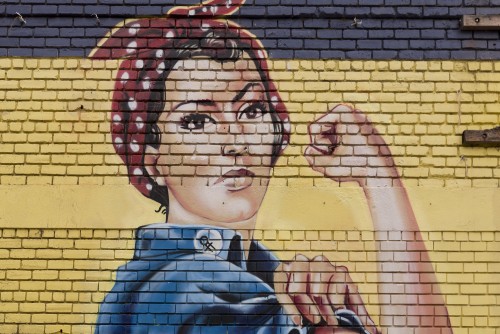Africa and the Diaspora Track
The Africa and the African Diaspora track focuses on the peoples of the African continent and has the following requirements.
Follow the diaspora of African people, exploring both past and contemporary cultures. Including concepts ranging from slavery to contemporary art, Africana & African American studies highlights the creativity and resilience of a continent’s people while also asking us to reflect on the subject of race.
Sewanee’s African & African American studies minor comprises courses from across the spectrum of humanities and social sciences. It will encourage you to consider race and its intersection with class, gender, ethnicity, religion, and sexuality—especially how these concepts shaped the historical and contemporary experiences and contributions of people of African descent.
Pursuing this minor, you have the choice of two tracks: a) an Africa and the African diaspora track that focuses on the people of the African continent; and, b) an African American studies track that encompasses the history and culture of black people in the United States.
An introduction to how historical and contemporary analyses of cultural, political, and social forces in America, the Atlantic world (Europe, Latin America, and the Caribbean), and Africa have influenced the experiences of people of color. To illuminate those life experiences, the course employs the concept of race (as a theoretical, historical, and critical category), historiography, social analysis, and cultural critique.
This comparative and interdisciplinary course investigates the social, economic, intellectual, cultural, and political achievements of people of African descent as well as the challenges faced by them. It considers the Black experience globally and analyzes the ways in which intersections of race, gender, class, and other markers of difference complicate that experience. The course examines concepts, theories, and themes central to the African Diaspora and engenders a critique of the ways in which knowledge is disseminated and produced. Through exploration of the seminal texts in the Black literary tradition, the course promotes a comprehensive knowledge of the discipline, its core concerns, and its methodologies.
A study of the major traditions of African-American writing from the nineteenth century to the present, including Frederick Douglass, Linda Brent, Zora Neale Hurston, Langston Hughes, Richard Wright, Ralph Ellison, Ernest Gaines, Toni Morrison, and Rita Dove.
The Africa and the African Diaspora track focuses on the peoples of the African continent and has the following requirements.
The African American studies track encompasses the history of black people in the United States and has these requirements.
Julie K. Berebitsky teaches a variety of courses in U.S. women's history and Women's and Gender Studies. She earned her B.A. at the University of California, Davis, her M.A. in Women's Studies at George Washington University and her Ph.D. in History at Temple University. She offers courses in United States history, specializing in women's history, and is also on the Editorial Board of the Journal of Social History.
Courtney L. Thompson's research areas focus on the African diaspora, with particular emphasis on Black women’s studies, the African American literary tradition, constructions of Black masculinity, and diverse representations of Africa. Dr. Thompson’s current research examines political discourse in Black women’s writings, specifically the relationship between Black women’s progressive politics in the United States and democratic reform.
Walsh-Ellett 209, ext. 1725

At Sewanee, we pledge to offer each student an opportunity to study abroad. And at Sewanee, we keep our promises. Travel, learn, and cultivate your knowledge by communicating across cultures and acquiring a sensitivity to other ways of life. Apply social scientific methodologies to various frameworks. Learn to formulate solutions to global problems and apply those theories at home in a local context.

The Bairnwick Women’s Center is a student-led movement that seeks to educate and to empower the Sewanee community by promoting social justice, equality, and voice. Challenge notions of traditional understanding. Commit to open and honest dialogue. Provide a platform for many voices.

The Ayres Multicultural Center is a setting where you and other members of your community from different backgrounds can come together for quality time, conversation, and events. A student body and a curriculum that reflect the diversity of our society are important features of any college experience.